Château Le Tertre-Roteboeuf 1,5 L.
 A.O.C. Saint-Émilion, Bordeaux, France.
A.O.C. Saint-Émilion, Bordeaux, France.![]() Merlot and Cabernet Franc.
Merlot and Cabernet Franc.![]() Red wine Magnum Bottle, 1,5 L.
Red wine Magnum Bottle, 1,5 L.
 EUR, Final price!
EUR, Final price! Delivery
Delivery  January Thursday 30 - Friday 31
January Thursday 30 - Friday 31 FREE SHIPPING!
FREE SHIPPING!| Producer | Château Le Tertre-Roteboeuf. |
| Variety |
|
| Country of origin |
 France. France.
|
| Region of origin |
 Bordeaux. Bordeaux.
|
| Appellation of origin |
 A.O.C. Saint-Émilion. A.O.C. Saint-Émilion.
|
| (UE)401/2010 Certification |
Appellation d'Origine Contrôlée (A.O.C.) A.O.C. Saint-Émilion. |
| Production region | The production region of A.O.C. Saint-Émilion is located in La comarca de Libourne, en la margen derecha de la Dordoña. Está registrado como Patrimonio de la Humanidad por la UNESCO y sus 5.400 hectáreas representan el 67,5% de la superficie total de las comunas vitivinícolas (Saint-Émilion, Saint-Christophe-des-Bardes, Saint-Hippolyte, Saint-Étienne-de-Lisse, Saint-Laurent-des- Combes, Saint-Pey-d'Armens, Saint-Sulpice-de-Faleyrens, Vignonet, y una parte de la comuna de Libourne) y el 6% del total de viñedos de Burdeos. |
| Weight | 2.000 gr. (2,0 Kg.). |
| Typology |
Red wine. A.O.C. Saint-Émilion. |
| Variety |
|
| Vintage / Harvest |
Currently marketed by the producer.
|
| Format | Magnum Bottle. |
| Capacity | 1,5 L. |
| Alcohol content | 13.5% Vol. |
| Weight | 2.000 gr. (2,0 Kg.). |
| Special Format | Magnum Bottle. |
| Product reference | WAN4582556 |
| Actual price | 749,95 € |
| Minimum order quantity | 1 Unit. |
| Shipping deadline |
 Spain: Free Shipping. Spain: Free Shipping. Delivery term: Information and prices. |
| Storage position | Lateral position, horizontal bottle. |
| Storage temperature |
Store at a constant temperature between 10-17ºC. Humidity should be constant around 60-80%. |
| Recommendations | Keep preferably away from light. |
|
PLEASE NOTE: Our team is currently working on the translation of this information. You can check all these details in your language in the coming days. For additional and accurate information, please refer to the original version of this content. Our team provides this information and details in Español language. In case of doubt, misunderstanding or misreading about the content of this information you should refer to the original version of this page or contact our customer service team.  Español [ ES ] Español [ ES ]Château Tertre Roteboeuf es el Gran Vino de François Mitjavile en Saint-Émilion. 5,7 hectáreas divididas en dos parcelas (Tertre y Roteboeuf) sobre suelos arcillo-calcáreos. Pureza y definición, profundo, concentrado y muy seductor. Un vino de placer con un perfil casi borgoñón.
|
|
| Visual tasting note | Orange reflections, Reddish, Reddish hue. |
| Olfactory tasting note | Well integrated aromas, Attractive, Fresh notes. |
| Tasting note | Roasted aftertaste, Wild red fruits, Memories of coffee plantations. |
| Recommended pairing | Blood sausage, Goose cannelloni, Jewish, Sea stews. |
| Consumption temperature | 14ºC. |
| Consumption | It is recommended to drink in moderation and demonstrate a responsible consumption of alcoholic beverages. |
| Please keep in mind |
The information provided and referred to the product features and details has been provided by the expert, manufacturer or producer or published on the official sites. In no case can it be considered as assessment made by our team, unless expressly stated otherwise. We suggest you to refer to the comments and reviews posted by our customers and users to expand and contrast this information. |
| Misreading |
Our team provides this information and details in ESPAÑOL language. If you browse in another language note that the information contained may have been translated from the original language through an automated real-time process that has not been supervised by our human team. In case of doubt, misunderstanding or misreading about the content of this information you should refer to the original version of this page or contact our customer service team. |
| Product image |
The product image or its label is only relevant for graphic purposes, so it may not match the identification of the vintage or other features and details of the product for sale. This product is provided in the conditions and format in which it is marketed at the current time. This product is not identified or supplied in a specific vintage. The product image and label may not match the vintage identification or other characteristics and details of the product for sale. |
| Legal Notice |
It is against the law to sell or supply alcohol to, or to obtain alcohol on behalf of a person under the age of 18 years. If you are not more than 18 years old, you must leave this website. |
Selection by «Message in a Bottle®»
Red Wine. Premium Edition MBS Reserva. Customizable label.
No customer reviews at this time. Be the first to post a review!
Product Selection by Château Le Tertre-Roteboeuf.
3 Products, The best selection by Château Le Tertre-Roteboeuf.
Château Le Tertre-Roteboeuf 1,5 L.
Additional information.

|
«Château Le Tertre-Roteboeuf Saint-Émilion» is produced by Château Le Tertre-Roteboeuf. In the elaboration of «Château Le Tertre-Roteboeuf Saint-Émilion» the grape varieties that are used are Merlot and Cabernet Franc. «Château Le Tertre-Roteboeuf Saint-Émilion» is a product from France. The production region of «Château Le Tertre-Roteboeuf Saint-Émilion» is Bordeaux. It is certified with A.O.C. Saint-Émilion. The production region of A.O.C. Saint-Émilion is located in La comarca de Libourne, en la margen derecha de la Dordoña. Está registrado como Patrimonio de la Humanidad por la UNESCO y sus 5.400 hectáreas representan el 67,5% de la superficie total de las comunas vitivinícolas (Saint-Émilion, Saint-Christophe-des-Bardes, Saint-Hippolyte, Saint-Étienne-de-Lisse, Saint-Laurent-des- Combes, Saint-Pey-d'Armens, Saint-Sulpice-de-Faleyrens, Vignonet, y una parte de la comuna de Libourne) y el 6% del total de viñedos de Burdeos. The weight of «Château Le Tertre-Roteboeuf Saint-Émilion» is 2.000 grams (2,0 Kg.). |
Variety:
Merlot and Cabernet Franc.
Château Le Tertre-Roteboeuf 1,5 L.
Variety Merlot.
See Merlot Red wine list.
 Español [ ES ]
Español [ ES ]Origen.
La uva merlot, es una variedad de uva tinta de origen bordelés (Burdeos), al sudoeste de Francia que pertenece a la misma familia de los cabernet. Sus primeras plantaciones datan del siglo XIX. Es una cepa típica del Médoc Francés que, tras la Cabernet Sauvignon, es la segunda uva más plantada en el mundo, como consecuencia de que se aclimatan perfectamente a la mayoría de climas, tanto templados como cálidos. El 14% de las uvas plantadas en Francia son de esta variedad, mientras en Italia alcanza un 3%. La palabra merlot proviene de merle noir (palabra francesa), cuyo significado es mirlo. Su color es azul negruzco similar a la uva merlot.
Características.
La cepa de uva merlot bastante vigorosa, porte semierguido, buena fertilidad pero con poca producción, no se desarrollan muchos racimos por planta. Estos racimos son de tamaño medio a pequeño, con forma cónica alargada y no demasiado compacto. Las uvas merlot son pequeñas, muy uniforme a lo largo del racimo, esféricas, con un hollejo grueso, de color azul muy oscuro. Su pulpa es muy jugosa, consistente, sabrosa, dulce y despigmentada. El desborre es precoz y la maduración entre temprana y media, unos días después que el tempranillo. Si se vendimia antes se logran vinos más ácidos con lo que se aumenta su potencial para elaborar vinos de guarda. Si se retrasa su vendimia se obtienen vinos jugosos y frutales. Se adapta bien a suelos arcillosos y y ricos en calcio. La uva merlot también recibe el nombre de Alicante, Bigney Rouge, Crabutet noir, Merlau Rouge, Merlaut Noir, Merlo, Merlo Noir, Merlot Rouge, Planta de Médoc, Sème du flube, Sémilhon rouge, además de Vitraille. Variedad poco sensible a las enfermedades de la madera y a la desecación del raquis, aunque si es sensible al Mildiu y a la botritis en la maduración. Sensible al Black roth, y también a Cicadelidos y los Ácaros. Las heladas primaverales le afectan, aunque no excesivamente, pero su madera es muy sensible a los inviernos demasiado fríos. Se adapta muy bien a los distintos tipos de suelo. La cosecha con sequía es muy escasa, pero se suple bien con el riego por goteo. Sensible al corrimiento del racimo como consecuencia de la climatología lo que se puede corregir aportando boro. Requiere climas frescos, ya que en climas calurosos pierde pronto su acidez y su equilibrio tánico. Es fundamental realizar un adecuado abonado potásico., Se aconseja la conducción en espaldera, para el apoyo de su vegetación funcionando muy bien con poda de Guyot de siete u ocho yemas.
Zonas de cultivo.
La mayor presencia de la uva merlot se da en Italia y también Francia, en la región del Médoc. En España podemos encontrarla en Navarra y también en Cataluña, La Mancha, Huesca y se está empezando a plantar en Andalucia. También se localizan viñedos de merlot en la península balcánica, en Bulgaria, Croacia, Eslovenia, Montenegro, además de Rumania. Fuera de Europa existen plantaciones de esta variedad en California y región nordeste de Estados Unidos, Argentina, Nueva Zelanda, Sudáfrica, Chile y Australia.
Vinos.
Produce vinos redondos con cuerpo y estructurados. Vinos intensos de buena graduación alcohólica, que agradecen la crianza en madera. Son vinos con pocos taninos y acidez ligera, por lo tanto, se pueden mezclar con vinos más tánicos para aportarles así equilibrio. Es un vino más suave y también más redondo que el Cabernet Sauvignon. Aromas complejos, además de elegantes. Aromas a frutas rojas como cereza, ciruela. Especias, tabaco y también trufa. Los vinos más jóvenes poseen un aroma a frutas rojas, como la confitura bayas, cassis y notas vegetales. En los crianza encontramos toques de vainillas, frutas rojas y maduras como ciruela, tabaco, humo, cedro y también tostados, torrefacto como el café. Es de menor carácter tánico y además posee menos acidez que la cabernet Sauvignon, por lo que se suele mezclar con ésta, así como con la cabernet franc, resultando vinos más ligeros y frutales. También se usa para crear vinos merlot monovarietales.
Red wine Merlot
Product Selection Red wine Merlot.
Château Le Tertre-Roteboeuf 1,5 L.
Variety Cabernet Franc.
See Cabernet Franc Red wine list.
 Español [ ES ]
Español [ ES ]Origen.
La teoría más probable sobre el origen de la uva cabernet franc , es la que establece sus primeros asentamientos en la zona de Libourne, al suroeste de Francia, a lo largo del siglo XVII, cuando el cardenal Richelieu transportó esquejes de la vid desde el valle del Loira. Fueron plantados en la abadía de Bourgueil, bajo los cuidados de un abad llamado Bretón, cuyo nombre se asoció a la uva. En el siglo XVIII, se encontraron plantaciones de cabernet franc en Fronsac, Pomerol y Saint-Émilion destinadas a la producción de vino de buena calidad. La popularidad de la cabernet sauvignon creció en los siglos XIX y XX, y se observó el gran parecido con la cabernet franc por lo que se extendieron las teorías sobre su relación. En 1997, la evidencia del ADN mostró que la cabernet franc había sido cruzada con la sauvignon blanc para producir la cabernet sauvignon. A la cabernet franc también se la conoce como bretona, bretón, basilisca, bouchy, verón, veronais, arenera, bordo, bouchet, bouchy, capbretón y plant bretón.
Características.
Las cepas cabernet franc son vigorosas, poco ramificadas, de porte erguido, que dan buenas producciones. El desborre de estas viñas es precoz o medio y su maduración también de media estación. Los racimos son cilindrocónicos de tamaño mediano, algunas veces alados, compactos, pero no demasiado y de bayas uniformes. Los pedúnculos son cortos y, normalmente, no lignificado en su base, con uvas que se desprenden bien cuando están maduras pero que, cuando no han llegado a su punto de maduración, es difícil su desprendimiento. Estas uvas son pequeñas, esféricas, la pigmentación de su piel es negroazulada, provista de una gruesa capa de pruina y una muy marcada cicatriz estilar. El hollejo es grueso y la pulpa sin pigmentar, blanda, pero con cierta consistencia y muy jugosa, con sabor herbáceo característico. La uva cabernet franc es muy sensible a la excoriosis y al complejo de hongos de la madera. Es bastante sensible al mildiu, al oídio y a la podredumbre negra, o black-rot pero muy resistente a la clorosis férrica, la eutipiosis y la botritis. Es atacada por la polilla de racimo, los cicadélidos y los ácaros . Al tener un desborre medio, se comporta bien ante los fríos primaverales, no se ve afectada por el viento, siempre que haya sido podada de manera adecuada y sea conducida en espaldera. Aunque prefiere suelos arcillosos y calcáreos, se comporta bastante bien en todo tipo de suelos, obteniéndose buenos resultados con suelos arenosos, siempre que no sean demasiado húmedos.
Zonas de cultivo.
La variedad cabernet franc se encuentra en el top veinte de las uvas con mayor extensión de viñedos en el mundo. Sus plantaciones se extienden por todo el mundo, desde Europa, donde estaca su presencia en Francia e Italia, aunque también está presente en España, Hungría, Eslovenia y Bulgaria, hasta América, China o Kazakistan. En el Nuevo Mundo, la cabernet es usada sobre todo como un componente de vinos de mezcla y se encuentra de forma escasa en Australia, Sudáfrica, Chile, Argentina y Nueva Zelanda.
Vinos.
La cabernet franc comparte muchos de los mismos compuestos fenólicos y componentes aromáticos de la cabernet sauvignon, pero con algunas diferencias apreciables. La cabernet franc tiende a tener pigmentaciones más claras y produce vinos con el mismo nivel de intensidad y riqueza. La cabernet franc produce mostos con mucho color, altos niveles de azúcar, muy perfumados y con aroma a frambuesa, grosella negra, violeta y grafito. Esos mostos tan cubiertos de color se transmiten a los vinos para producir caldos muy coloreados, agradables y con aromas a frambuesa y violeta. Son vinos muy delicados con niveles de acidez y polifenoles un poco por debajo de los que se obtienen con los vinos de cabernet Sauvignon. Es menos tánica que la cabernet sauvignon dando lugar a una boca más suave. Son vinos muy aptos para la crianza en barrica, ya que envejecen muy bien. Para la elaboración de Burdeos se mezcla con uvas cabernet sauvignon y merlot.
Red wine Cabernet Franc
Product Selection Red wine Cabernet Franc.
Château Le Tertre-Roteboeuf 1,5 L.

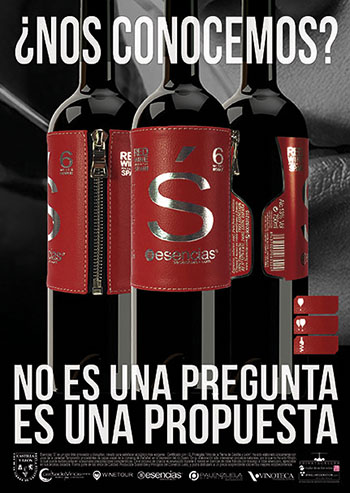
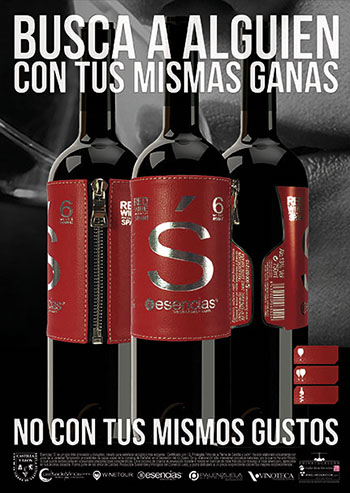
Data sheet.
Château Le Tertre-Roteboeuf 1,5 L.
Red wine. Château Le Tertre-Roteboeuf. A.O.C. Saint-Émilion. Bordeaux. France. Merlot, Cabernet Franc. Magnum Bottle. 1,5 L..
| Variety | |
| Country of origin |  France. France. |
| Region of origin |  Bordeaux. Bordeaux. |
| Appellation of origin |  A.O.C. Saint-Émilion. A.O.C. Saint-Émilion. |
| Vintage / Harvest | Currently marketed by the producer. |
| Format | Magnum Bottle. |
| Capacity | 1,5 L. |
| Alcohol content | 13.5% Vol. |
| Visual tasting note | Orange reflections, Reddish, Reddish hue. |
| Olfactory tasting note | Well integrated aromas, Attractive, Fresh notes. |
| Tasting note | Roasted aftertaste, Wild red fruits, Memories of coffee plantations. |
| Recommended pairing | Blood sausage, Goose cannelloni, Jewish, Sea stews. |
| Consumption temperature | 14ºC. |
| Special Format | Magnum Bottle. |
| Typology | Red wine. A.O.C. Saint-Émilion. |
| Producer | Château Le Tertre-Roteboeuf. |
| Weight | 2.000 gr. (2,0 Kg.). |
| Product reference | WAN4582556 |
| Actual price | 749,95 € |
| Minimum order quantity | 1 Unit. |
| Shipping deadline |  Spain: Free Shipping. Spain: Free Shipping. Delivery term: Information and prices. |
| Please keep in mind | The information provided and referred to the product features and details has been provided by the expert, manufacturer or producer or published on the official sites. In no case can it be considered as assessment made by our team, unless expressly stated otherwise. We suggest you to refer to the comments and reviews posted by our customers and users to expand and contrast this information. |
| Misreading | Our team provides this information and details in ESPAÑOL language. If you browse in another language note that the information contained may have been translated from the original language through an automated real-time process that has not been supervised by our human team. In case of doubt, misunderstanding or misreading about the content of this information you should refer to the original version of this page or contact our customer service team. |
| Product image | The product image or its label is only relevant for graphic purposes, so it may not match the identification of the vintage or other features and details of the product for sale. This product is provided in the conditions and format in which it is marketed at the current time. This product is not identified or supplied in a specific vintage. The product image and label may not match the vintage identification or other characteristics and details of the product for sale. |
| Description | PLEASE NOTE: Our team is currently working on the translation of this information. You can check all these details in your language in the coming days. For additional and accurate information, please refer to the original version of this content. Our team provides this information and details in Español language. In case of doubt, misunderstanding or misreading about the content of this information you should refer to the original version of this page or contact our customer service team.  Español [ ES ] Español [ ES ]Château Tertre Roteboeuf es el Gran Vino de François Mitjavile en Saint-Émilion. 5,7 hectáreas divididas en dos parcelas (Tertre y Roteboeuf) sobre suelos arcillo-calcáreos. Pureza y definición, profundo, concentrado y muy seductor. Un vino de placer con un perfil casi borgoñón. |
| Country of origin | Spain. This product is shipped from Spain. |
| (UE)401/2010 Certification | Appellation d'Origine Contrôlée (A.O.C.) A.O.C. Saint-Émilion. |
| Production region | The production region of A.O.C. Saint-Émilion is located in La comarca de Libourne, en la margen derecha de la Dordoña. Está registrado como Patrimonio de la Humanidad por la UNESCO y sus 5.400 hectáreas representan el 67,5% de la superficie total de las comunas vitivinícolas (Saint-Émilion, Saint-Christophe-des-Bardes, Saint-Hippolyte, Saint-Étienne-de-Lisse, Saint-Laurent-des- Combes, Saint-Pey-d'Armens, Saint-Sulpice-de-Faleyrens, Vignonet, y una parte de la comuna de Libourne) y el 6% del total de viñedos de Burdeos. |
| Storage position | Lateral position, horizontal bottle. |
| Storage temperature | Store at a constant temperature between 10-17ºC. Humidity should be constant around 60-80%. |
| Recommendations | Keep preferably away from light. |
| Accessories | This product is provided in the conditions and format in which it is marketed at the current time. In cases where the product includes an additional packaging, box and/or case, These accessories will be included in the shipment as long as they comply with the dimensions of the special packaging adapted and approved for the transport of beverages. In general, the images of the products that we publish on our website are only relevant for graphic purposes. The images do not show other accessories such as additional packaging (box, case, etc.) or promotional elements that may occasionally be included by the manufacturer along with the product. If you wish, we can inform you about the additional packaging, elements and accessories included with the product at the current time. |
| Legal Notice | It is against the law to sell or supply alcohol to, or to obtain alcohol on behalf of a person under the age of 18 years. If you are not more than 18 years old, you must leave this website. |
| Consumption | It is recommended to drink in moderation and demonstrate a responsible consumption of alcoholic beverages. |
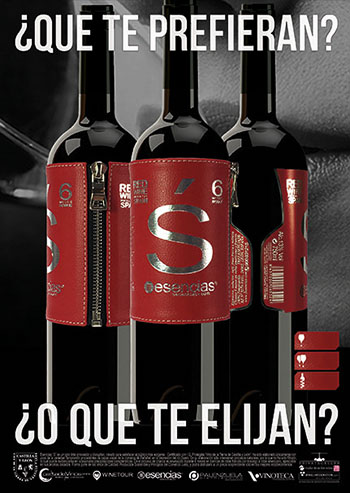
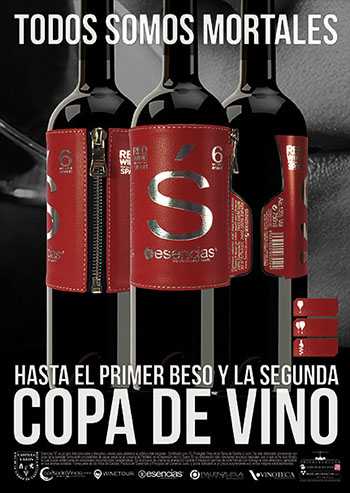
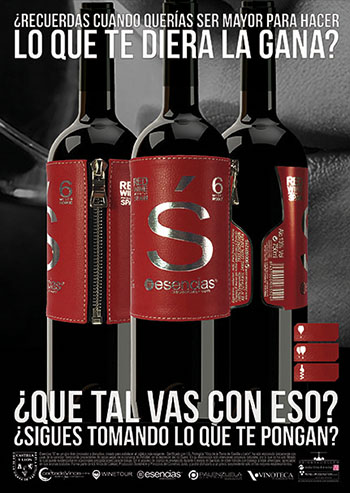
 Italy
Italy Argentina
Argentina United States
United States Australia
Australia Portugal
Portugal Chile
Chile New Zealand
New Zealand South Africa
South Africa



 Germany
Germany Austria
Austria



 Tokaj-Hegyalja
Tokaj-Hegyalja





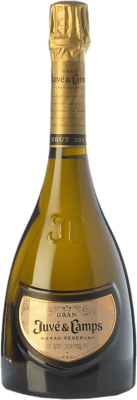
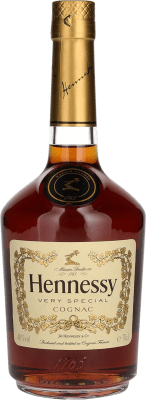


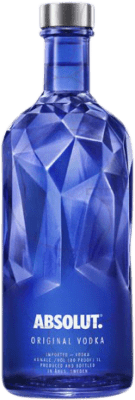






















 Language English
Language English





































